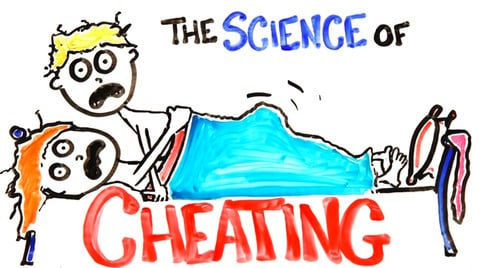
Does the phrase “once a cheater, always a cheater” have a basis not only in reality but also in science?
Greg and Mitch at ASAPScience look at the science behind the human impulse to cheat in their latest YouTube video. As it turns out, “extra-pair mating” (aka infidelity) is a fairly common human behavior that is directly tied to the “happy hormone”, dopamine. Another hormone, vasopressin, also plays a role in how likely a person might be to cheat. But can science tell us anything specific about cheating in same-sex relationships? Unfortunately, the vast majority of current research on cheating focuses on heterosexual relationships, proving that scientific research continues to ignore certain minority groups.
Find out what science can tell us about infidelity, below:




